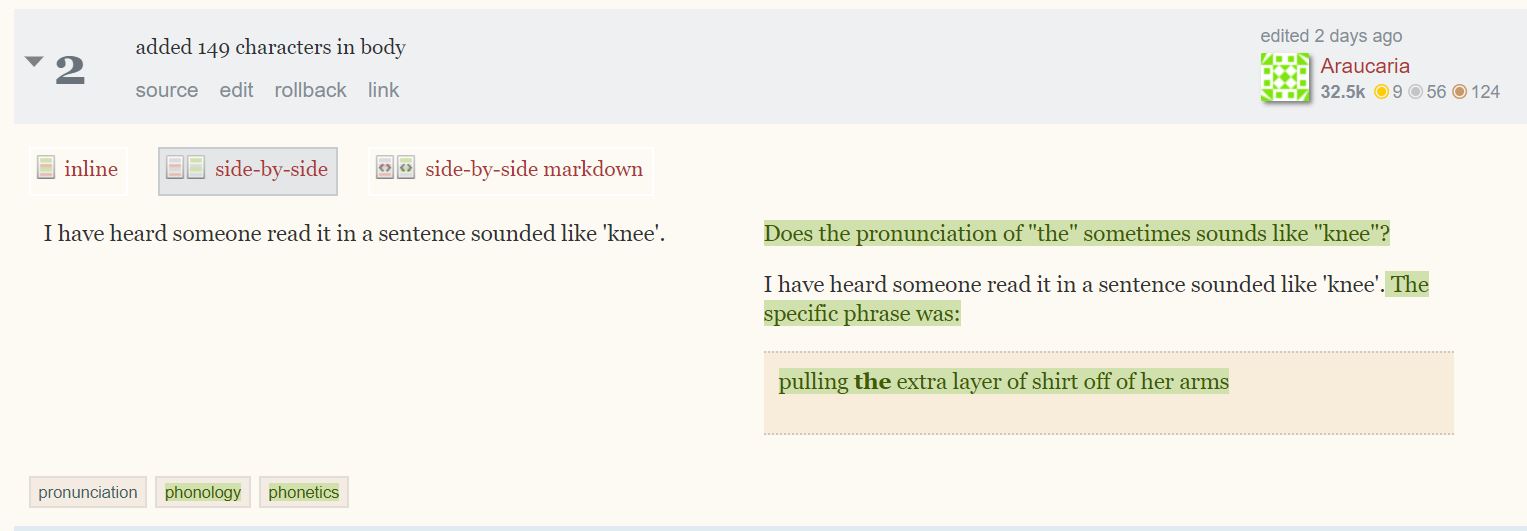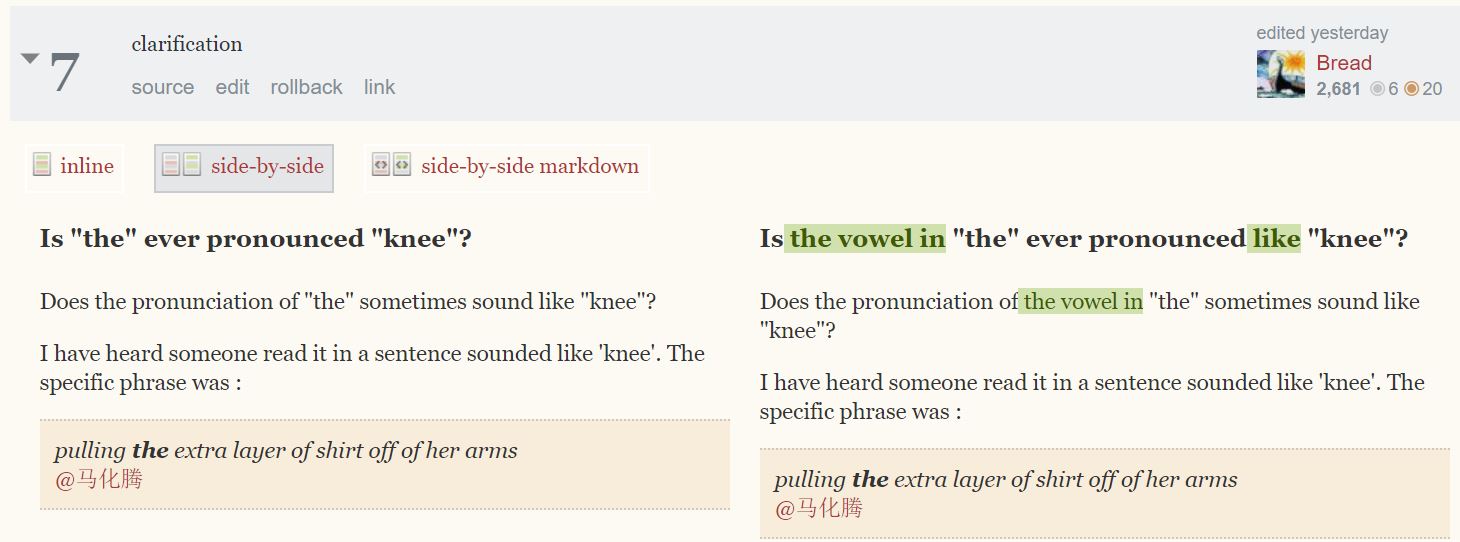Is "the" ever pronounced "knee"?
To begin with, it's illogical, and no dictionary or book that I'm aware of has been cited to prove that the consonant portion of "the" should or would ever be pronounced like "knee" by anyone proficient in English.
Personally, I do not believe that was the OP's intent, either. I believe it truly was a usage question, not nearly as technical and complicated as any linguistics question.
And there is a Linguistics SE, where these sorts of spirited and fun debates might take place without the risk of confusing ordinary students of English language. That is if they think it would be appropriate at all, therein.
I don't think it does the OP (or other readers) justice, what has happened to their question. Their question for the most part (with one possible exception), has not been properly answered, or edited. In fact the person running off with it, is the same who edited to fit their agenda.
It is very likely that it should have been migrated to ELL or to Linguistics (if that's really the case) instead, because it most likely is a duplicate anyway. That would have been much simpler, and probably a little boring.
I'm just surprised how far this has gone, to the point where someone like me feels the need to discuss it in Meta (something I really have little experience or desire to do, unless absolutely necessary). But I would feel negligent to just let this matter continue like that, without trying to correct it.
It's like watching the Emperor strutting around buck naked, while a crowd of servants bow and praise him for his nonexistent pride. Quite embarrassing.
Additionally: I should point out that the original OP was tagged Pronunciation only, and had the phonology and phonetics tags subsequently added in edits done by the linguistically gifted user who answered the question.
I mention it now, because although I thought it should have been obvious enough to anyone, apparently it's a relevant detail that was completely ignored or overlooked by everyone but me. I've been told that my edit which was intended to reflect the OP's original intent, was the only "major" change made, among numerous edits. But that hardly seems fair criticism.
I realize the matter is settled already. But I feel a fair decision depends on having all the facts laid out from the beginning. Omission only leads to misinformation.
Also, please take into consideration that mine was the seventh edit on the OP, and my sole focus was to clarify the intended meaning. I missed a few details that had been added by other edits.



